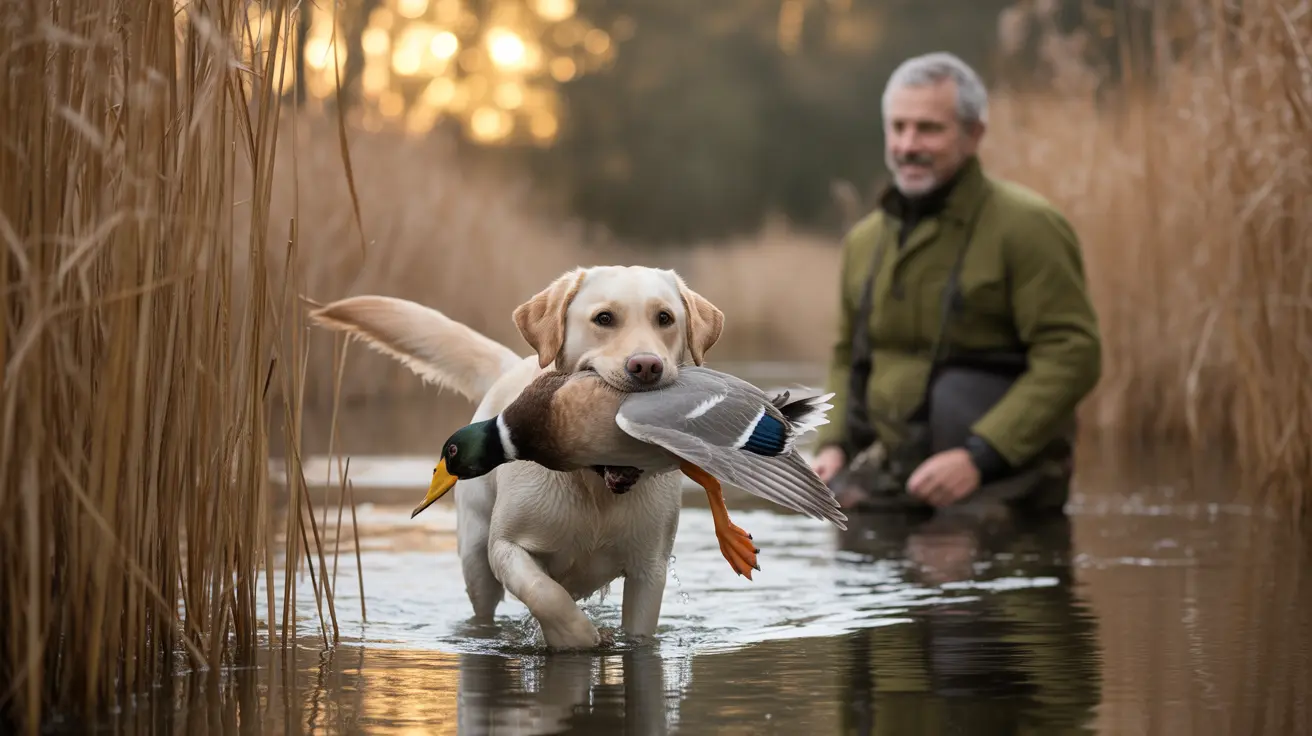Introduction
Hunting dogs have been invaluable companions to hunters for thousands of years, combining instinct, training, and loyalty to help locate, track, and retrieve game. These specialized breeds represent some of the most versatile and skilled working dogs in existence, each bringing unique abilities to the hunt. Whether you're looking for a waterfowl retriever, an upland bird pointer, or a big game tracker, understanding the different types of hunting dogs and their capabilities is crucial for making the right choice for your hunting needs.
From the water-loving Labrador Retriever to the tenacious German Shorthaired Pointer, today's hunting dogs reflect centuries of careful breeding for specific hunting tasks. Let's explore the world of hunting dogs, their specialized roles, and how to choose the perfect hunting companion for your needs.
Types of Hunting Dogs and Their Specialties
Retrievers: Masters of the Water and Field
Labrador Retrievers and Chesapeake Bay Retrievers excel in waterfowl hunting, featuring water-resistant coats and powerful swimming abilities. These breeds are known for their soft mouths, ensuring retrieved game remains undamaged, and their exceptional trainability makes them ideal for both novice and experienced hunters.
Pointers: The Ultimate Bird Hunting Partners
German Shorthaired Pointers and English Pointers are renowned for their ability to locate and indicate the presence of game birds. Their distinctive pointing stance, combined with outstanding stamina and keen noses, makes them invaluable for upland bird hunting across various terrains.
Essential Characteristics of Quality Hunting Dogs
Successful hunting dogs share several crucial traits that make them effective in the field:
- Strong prey drive and natural hunting instincts
- Excellent scenting abilities
- High endurance and physical stamina
- Trainability and intelligence
- Weather-resistant coats
- Strong swimming abilities (for water retrievers)
- Good temperament and focus
Training Your Hunting Dog
Proper training is essential for developing a reliable hunting companion. Start with basic obedience training at a young age, gradually introducing hunting-specific skills like retrieving, tracking, and responding to commands. Early exposure to different environments, sounds, and situations helps create a well-rounded hunting dog.
Professional training programs can be valuable, especially for first-time hunting dog owners. These programs help develop essential skills while ensuring proper behavior in the field and at home.
Choosing the Right Hunting Dog for Your Needs
Consider these factors when selecting a hunting dog:
- Type of game you'll be hunting
- Hunting environment and terrain
- Your experience level with dog training
- Available time for exercise and training
- Living situation and family dynamics
- Climate conditions in your hunting area
Frequently Asked Questions
What are the best hunting dog breeds for beginners, and how do I choose one?
For beginners, Labrador Retrievers are often recommended due to their versatility, trainability, and friendly temperament. They excel at both waterfowl and upland game hunting while making excellent family companions. Consider your primary hunting goals and lifestyle when choosing.
How do I train a hunting dog to handle different types of game and terrain?
Start with basic obedience training, then gradually introduce specific hunting scenarios and environments. Use positive reinforcement and progressive exposure to different game scents, terrain types, and hunting situations. Professional guidance can be valuable for developing advanced skills.
What are the key characteristics of a versatile hunting dog, and how do they adapt to various hunting conditions?
Versatile hunting dogs possess strong scenting abilities, high stamina, intelligence, and adaptability. Breeds like the German Shorthaired Pointer can transition between pointing, tracking, and retrieving while working effectively in different terrains and weather conditions.
How do I transition a hunting dog from hunting season to family life without disrupting their behavior?
Maintain consistent training and exercise routines year-round. Provide mental stimulation through training exercises and games during off-season. Regular obedience work helps maintain discipline while ensuring the dog remains a well-behaved family member.
What are the most important factors to consider when selecting a hunting dog breed based on the type of quarry and environment?
Consider the dog's natural hunting style, physical capabilities, and how they match your target game and hunting environment. Factor in the breed's exercise requirements, grooming needs, and temperament to ensure they fit your lifestyle both during and outside hunting season.
Conclusion
Selecting and training the right hunting dog requires careful consideration of multiple factors, from the type of hunting you plan to do to your lifestyle and experience level. With proper research, training, and dedication, you can develop a successful partnership with your hunting dog that extends beyond the field and into family life.






